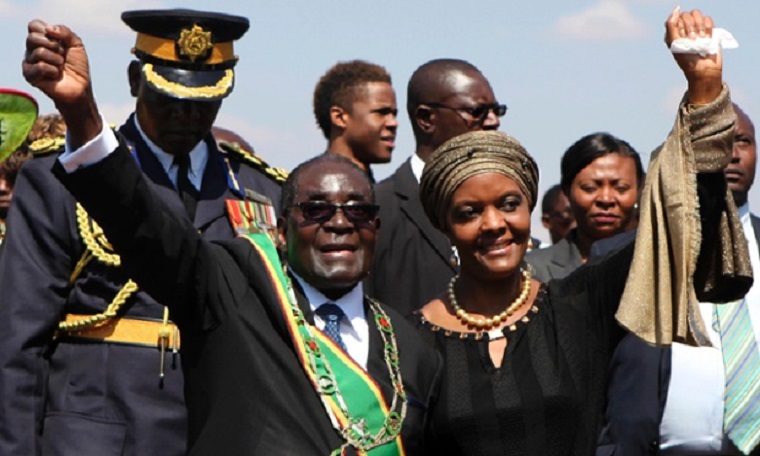On Monday, President Robert Mugabe fired his vice-president Emmerson Mnangagwa, sending shockwaves through Zimbabwe’s political establishment.
“I think that this is one of the most significant political events since independence,’ said David Coltart, a prominent opposition leader and former Education Minister.
Of course, over nearly four decades in power, Mugabe has seen off more than his fair share of potential rivals. But Mnangagwa was supposed to be different.
For a start, Mugabe and Mnangagwa shared a long personal history of working together, dating all the way back to 1977, during the liberation struggle, when Mnangagwa was drafted in by Mugabe as his assistant in Mozambique.
But far more significant than that were Mnangagwa’s alleged links to Zimbabwe’s influential security establishment, including the military, the police and the ruling party’s military veterans association.
According to conventional wisdom, this made Mnangagwa simply too powerful to be fired.
Once again, however, Mugabe proved himself immune to conventional wisdom.
“Mnangagwa more than anyone else has been Mugabe’s right-hand man. He has been Mugabe’s go-to person on a range of issues, from Gukurahundi to the response to the 2008 election to the organisation of the 2013 election. At the very least, Mugabe has broken with the person who has got all that intelligence about how they have done things. And that situation is compounded by the fact that Mnangagwa clearly has the support of a significant segment of war veterans who have done most of the campaigning for Mugabe in the past … I see this as a desperate move by Mugabe with high potential political cost,” said Coltart.
In the short term, Mnangagwa’s fall looks likely to pave the way for even greater political prominence for the President’s wife, Grace Mugabe, who leads the Generation 40 (G40) faction within the ruling Zimbabwe African National Union – Patriotic Front (ZANU-PF).
The G40, which includes heavyweights such as Higher Education Minister Jonathan Moyo and Defence Minister Sydney Sekeramayi, has now all but vanquished the rival Lacoste faction headed by Mnangagwa.
This does not mean, however, that the long-running and increasingly bitter race to succeed Mugabe is over. Far from it.
Continued next page
(609 VIEWS)
